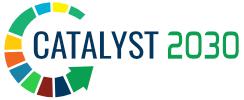The current discourse about data, which is being mass accumulated, aggregated and processed around the world, inevitably raises the question of what is the extent to which all this powerful information transcends the core principle of human rights, thus further widening the gap of the ever-growing challenges with inequality. It is undeniable that most of the data is nowadays being managed and controlled by developed economies, within which powerful actors have been leveraging its potential as a saleable commodity in the world economy, mostly for private wealth, often to the detriment of the billions of people and communities worldwide. We are also seeing a massive data imbalance. Data is expensive and relatively hard to obtain, thus favouring big companies and organisations to invest in a large amount of data and infrastructure for greater data control. Indeed, not complying with the established rules and guidelines about data privacy is the root cause of why such colonisation of data is possible. The Catalyst 2030 community, among many other organisations and individuals working in the social economy, relies on mass information; For people and organisations working towards a SE, the SDGs, and sustainable development, collecting and analysing data enables us to generate deep insights we need to guide our initiatives and innovation toward, thus improving our overall resource efficiency. Hence, in the silos of large multilateral organisations and on the ground through NGO and Citizen sector organisations, the sector controls much of such meaningful data, which enables us to learn about the challenges and work with people, communities, and nations worldwide proactively and collaboratively addressing these. As such, we must enact upon shared principles of data ownership, privacy and control; if not, we might become marginalised by large players in the world economy and potentially lose control of all this invaluable information.
Catalysing Change Week | 1–5 May 2023
Solutions from the Frontlines
Universal Data Ownership
10 May 2022 | 18:00 - 19:00
CEST
Virtual
(Policy) Roundtable discussion
The hosts
Arthur Wood
Jim Fruchterman
Anand Arkalgud
